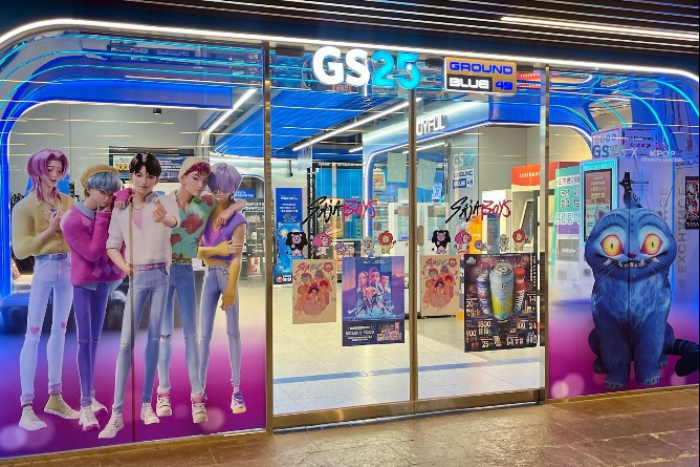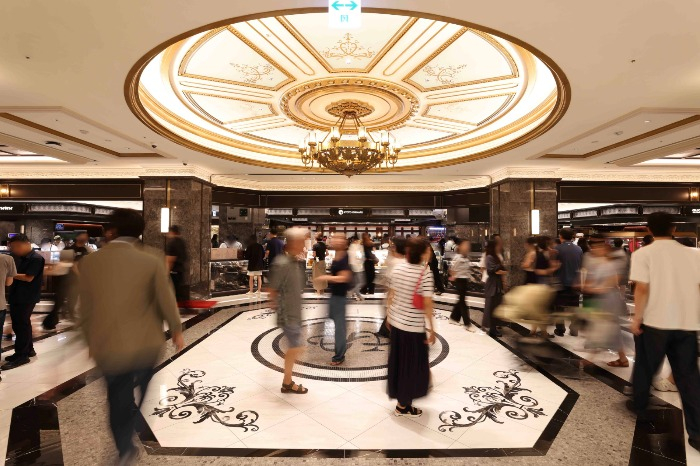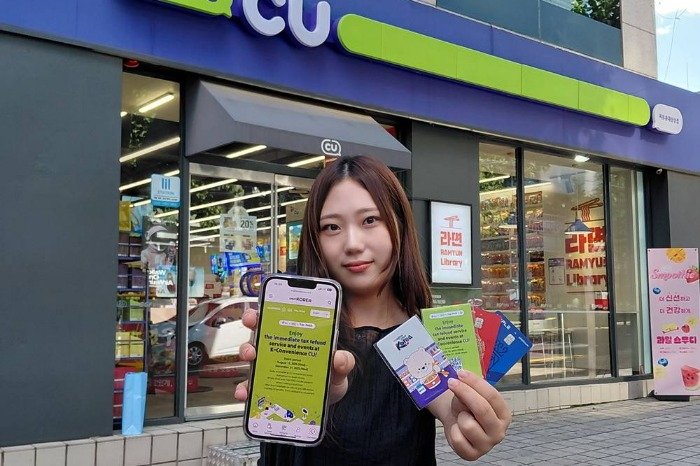
South Korean retailers are pinning their hopes on a wave of foreign tourists lured by booming Korean pop culture, from KPop Demon Hunters to K-beauty and cuisine, to lift sluggish sales amid a prolonged domestic spending slump.
From department stores to convenience chains, retailers are expanding foreigner-friendly services and marketing campaigns as travel rebounds toward pre-pandemic levels, with more than 20 million visitors expected this year.
According to retail industry data on Friday, foreign customer sales at the nation’s three largest department store operators – Lotte, Hyundai and Shinsegae – climbed 30% to 65% year-on-year in the first nine months of 2025.
At Shinsegae Department Store, overseas shoppers accounted for 12.6% of total revenue at its Myeongdong flagship, Gangnam and Centum City branches, more than doubling from 5.7% in 2023.
Hyundai Department Store’s The Hyundai Seoul in Yeouido reported a rise in foreign shoppers from 9.7% to 15.1% during the same period, while Lotte Department Store’s Myeongdong flagship saw the foreign share surge to 25% of total sales this month.
“The tourism trend has expanded from simple shopping to cultural and experiential visits, which has boosted foreign spending across the retail sector,” said an official from a major retailer.

FOREIGNER-FRIENDLY SERVICES
Department stores are moving aggressively to capture this windfall.
Lotte Department Store plans to introduce a membership program for foreign customers at its Myeongdong store later this year, offering loyalty perks and multilingual assistance.
Hyundai Department Store is already providing luggage storage to make shopping easier for travelers.
These initiatives come as household spending remains subdued, pressured by higher interest rates and slower economic growth.
For store operators, foreign visitors inspired by Korean content, such as KPop Demon Hunters, cosmetics brands and food culture, have become an essential driver of growth.
SMALLER CONVENIENCE STORES ALSO FEEL THE BOOM
The momentum extends beyond high-end retail.
The country’s convenience-store chains, including CU, GS25 and 7-Eleven, are also reaping the benefits as K-wave tourists seek out snacks, K-pop albums and trendy local products.

Between January and September, foreign customer sales at CU soared 90.3% from a year earlier, followed by 75.9% at GS25 and 60% at 7-Eleven.
To meet rising demand, CU plans to expand its AI translation service, first launched in March, to more than 100 stores by year-end.
GS25 operates K-pop album zones at popular outlets in Myeongdong, Seongsu and Incheon Airport, while 7-Eleven has installed self-service kiosks that let travelers exchange currency, top up transit cards and purchase prepaid services at once.
Other shopping destinations such as Olive Young and Daiso, fixtures on tourist itineraries for K-beauty and affordable merchandise, are also seeing solid growth.
Spending by foreign customers at Olive Young jumped 60% in the first nine months of the year, and Daiso posted a 50% increase over the same period.
By Tae-Ung Bae and Hyun-jin Ra
btu104@hankyung.com
Sookyung Seo edited this article.















